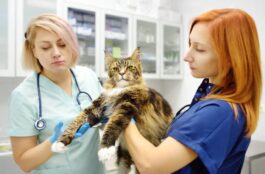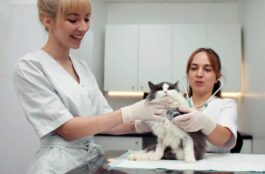
From their ability to make us laugh to their unending love, loyalty, care, and affection, pets provide us with abundant benefits throughout their lives. Therefore, it makes sense to consider how we can give back to them as they age.
It is essential to keep in mind that aging is not a disease. Even though senior pets may experience age-related issues, you can help them live a long, happy, and active life by meeting their physical, mental, and healthcare needs.
Healthy Procedures for Aging Dogs
Visit Your Vet Frequently
The health status of older animals declines more rapidly than their younger counterparts. Arthritis, heart disease, cataracts, organ failure, loss of hearing or vision, and tumors are common among senior pets.
Regular veterinary examinations can detect problems in aging animals before they become severe or life-threatening, allowing your pet to live a longer, healthier life.
Exams for senior pets are more exhaustive but otherwise comparable to those for younger animals. These examinations include dental work, possible blood tests, and specific checks for signs of age-related diseases. Check it out to learn more about internal medicine.
More Time, Affection, and Focus
Even though aging is a natural part of life, watching a beloved pet age can be challenging. It is more important than ever to make the most of your furry best friends and spend quality time with them.
Spend time doing what you and your partner enjoy most. Whether playing games in the backyard, cuddling on the couch, or exploring a new park together. In addition to providing you with priceless memories, spending time with your pet will give them what they desire most: a close relationship and quality time with you.
Give Additional Time for Grooming
Your pet may find it more difficult or less appealing to groom themselves as frequently as they did when they were younger as they age. In addition, their skin may become flaky, and their fur may lose luster.
Regular brushing and other at-home grooming routines can assist with this. Additionally, you should bathe your pet more frequently, particularly if they have incontinence or bathroom-related accidents.
Regularly taking your pet to the groomer will keep their coats healthy and shiny and their claws trimmed and in excellent condition.
How Can Senior Pets Maintain Their Happiness and Health?
Regardless of how well you care for them, senior pets are susceptible to age-related issues, such as specific diseases. Senior pets require geriatric veterinary care and possible dietary and environmental adjustments.
- Diet and nutrition: Often, older animals require diets that are easier to digest, provide a variety of energy sources and ingredients, and contain anti-aging nutrients.
- Weight management: Senior dogs who gain weight are at a greater risk of developing health problems than senior cats who lose weight, who are at a greater risk.
Animal Screening Exams
A comprehensive physical examination and veterinary diagnostics lab are indispensable for the early detection of health issues in senior dogs. Senior refers to dogs and cats seven years or older. At the time of their annual physical, geriatric patients are advised to get a blood and frequent urine test at least once yearly. This will screen for diseases that commonly affect older animals.
Even if screening test results are normal, the test provides a baseline result so that subsequent blood samples from the animal can be compared to it. Regular examinations are essential for maintaining the health of senior pets for as long as possible.
Conclusion
Prevention is crucial to the health of senior pets. With routine examinations, diagnostic testing, and vaccinations, senior pets’ health can be monitored, and problems avoided. Pet owners and veterinarians must work closely together to develop a preventative care program that meets the specific needs of our aging pets.


